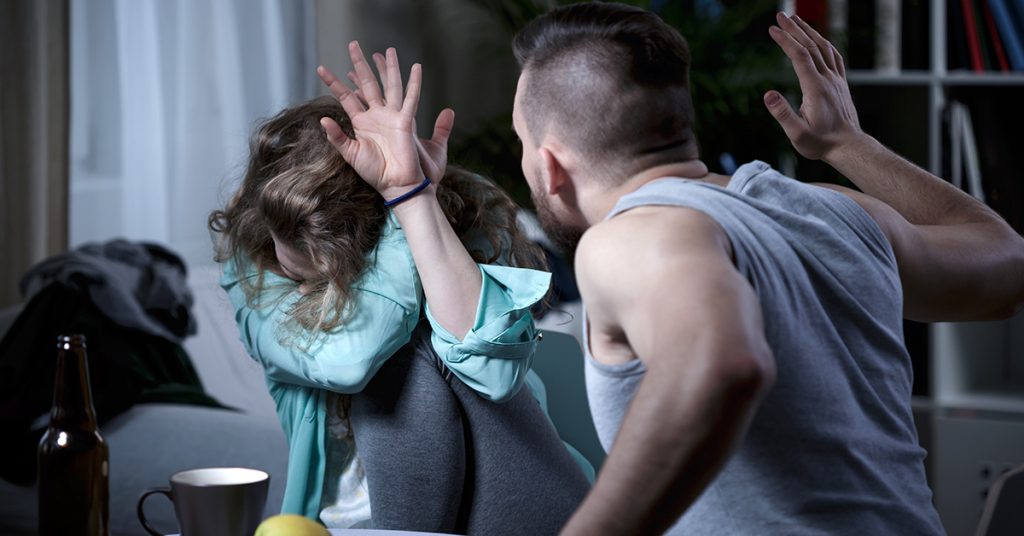SERVICES
Can You Reduce Drug Trafficking Charges?

If you’re facing drug trafficking charges, mounting a solid defense is your top priority. You may find yourself wondering if part of that defense can be arguing for a reduction in drug trafficking charges to a lesser charge. While that may seem like a good idea, your defense attorney will discuss if it is a possibility for your specific case.
In this brief article, a Tampa drug defense lawyer with The Rickman Law Firm shares how to mount a defense for your drug trafficking case including whether it’s possible to reduce drug trafficking charges.
What is Drug Trafficking?
Drug trafficking is the crime of transporting, manufacturing, or illegal import of illegal controlled substances, such as cocaine, marijuana, PCP, methamphetamines, heroin, and LSD. In order for the prosecutor to win a conviction, they must prove that the defendant was knowingly involved in drug trafficking activities. First, the prosecutor must prove that the defendant intended either to bring the drugs into the state of Florida or engage in drug trafficking. Then they must show that the seized materials are, in fact, controlled substances as defined by Florida state laws.
Generally speaking, controlled substances are illegal drugs with the capacity to have a harmful effect on a person’s health or welfare. Controlled substances are broken down into five categories under the Controlled Substances Act of 1970:
- Schedule I: Ecstasy, LSD, heroin, and marijuana
- Schedule II: Cocaine and methamphetamine
- Schedule III: Anabolic steroids, ketamine, testosterone
- Schedule IV: Ambien, Xanax, and Valium
- Schedule V: Lyrica and cough suppressants
Possible Defenses for Drug Trafficking
There are a few possible defenses for drug trafficking which you may want to consider:
- Unlawful search and seizure: The arresting officer did not have the right to search you or your person.
- Entrapment: You might find yourself being tricked, coerced, or set up during a sting operation.
- Insufficient evidence: The burden of proof lies on the prosecution, and if they do not have evidence the case may be thrown out.
- Your Miranda Rights were not read: Your rights must be clearly stated during any arrest, regardless of the charges.
Can a Drug Trafficking Defense Attorney in Tampa Reduce Your Charges?
In order to prove drug trafficking, prosecution only needs to prove that the defendant possessed a certain amount of a controlled substance defined by Florida Statute 893.135, which is different for each drug. The court may agree to forgo minimum mandatory sentences, however.
To understand the best defense for your case, a Tampa drug trafficking defense attorney with The Rickman Law Firm can help. We will discuss and negotiate matters with the State Attorney’s Office and will help you understand your rights during the process.
For a free consultation with a drug trafficking defense attorney in Tampa, please contact The Rickman Law Firm today.
Disclaimer: The information contained in this article is for general educational information only. This information does not constitute legal advice, is not intended to constitute legal advice, nor should it be relied upon as legal advice for your specific factual pattern or situation.
Cyber or Digital Fraud: What To Do If Accused

Cyber or digital crimes are occurring more frequently due to the pandemic. Although you may not have committed a cyber crime, you still might stand accused if your device was used to commit crime or if the actions can be traced to any of your accounts.
In this brief article, a fraud defense lawyer in Tampa with The Rickman Law Firm shares the most common types of digital fraud and how to defend yourself if you find yourself facing allegations of cyber crimes.
Common Types of Digital Fraud
Digital fraud goes beyond stealing credit cards via skimmers at gas stations. It can be far more subtle, creating a trail that can be traced back to you. A few common types of fraud include:
Credit Card Fraud
Florida Statute 817.61 has an extensive and comprehensive description of credit card fraud. However, in Florida, the general definition of fraudulent use of credit cards is considered an attempt to defraud a person or organization for the purpose of “obtaining money, goods, services, or anything else of value” by using a forged credit card, passing off that you’re the holder of the card, or using a card that has not been issued. Florida law considers a credit card to be a “credit card, credit plate, bank service card, banking card, check guarantee card, electronic benefits transfer (EBT) card, or debit card or by any other name.”
Under Florida law, committing credit card fraud two or fewer times in any six-month period to obtain money, goods, or services valued at less than $100 is a first-degree misdemeanor punishable by up to a one-year prison sentence and $1,000 fine. If over a six-month period of time, a person were to commit credit card fraud two or more times to obtain money, goods, or services valued at greater than $100, they would be charged with a third-degree felony punishable by up to a five-year prison sentence and $5,000 fine.
Identity Theft
Florida ranked number four in the nation for identity theft, according to a recent study. This constitutes a major number of accusations of fraud in the state as a whole. Identity theft occurs when someone steals the identity and credentials of another person. This can be taking someone’s identity online but is more likely the case of stolen funds through stolen information and posing as the other person. A case of identity theft can be challenging to prove unless a paper trail makes it clear.
Computer Trespassing
Criminal Lawyers in Tampa can Help
If you have been wrongfully accused of digital fraud or other types of cyber crimes, you have the right to defend yourself. A Tampa fraud defense lawyer with The Rickman Law Firm can help you find the best defense for your unique situation and can investigate to help you find out why you are being targeted.
For a free consultation with criminal lawyers in Tampa, please contact The Rickman Law Firm today.
Disclaimer: The information contained in this article is for general educational information only. This information does not constitute legal advice, is not intended to constitute legal advice, nor should it be relied upon as legal advice for your specific factual pattern or situation.
How Florida’s 10-20-Life Rule Affects Robbery Cases

If you’ve been accused of robbery, it is likely that you are under an immense amount of stress and pressure. Robbery is a serious charge, and with newer rules in the State of Florida, you may find yourself wondering how your case might be different from older cases in the past.
In this brief article, a Tampa robbery defense attorney with The Rickman Law Firm shares what you need to know about battery charges and what the 10-20-Life rule is, as well as its possible impact on your case.
What is the 10-20-Life Rule?
Under Florida Statute 812.13(1), the term “robbery” means “the taking of money or other property which may be the subject of larceny from the person or custody of another, with intent to either permanently or temporarily deprive the person or the owner of the money or other property, when in the course of the taking there is the use of force, violence, assault, or putting in fear.”
Although violence is already a component of robbery, it can be escalated into an even more severe crime if the aggressor is carrying a firearm or other deadly weapon. In Florida, this crime may be referred to as robbery, robbery with a firearm, or robbery with a deadly weapon, among other variations of robbery.
Robbery can be classified in the following ways:
- First Degree: Robbery committed with a firearm or any deadly weapon.
- Second Degree: Robbery committed without a firearm or any deadly weapon. Also called “Strong Arm” robbery.
- Sudden Snatching: Taking a person’s property while the victim is aware of the act. For example, stealing a woman’s purse from her person and running.
- Home Invasion: Entering someone’s home while occupants are present with the intention and the actual committing of a robbery.
- Carjacking: Taking a vehicle from someone by force, fear, violence, or assault. Whether or not a firearm or deadly weapon is used, this could lead to a first-degree felony conviction.
The “10-20-Life” law in Florida requires courts to subject to a “minimum sentence of 10 years, 20 years, or 25 years to life for certain felony convictions involving the use or attempted use of a firearm or destructive device.” First-degree robbery (armed robbery) qualifies for this strict sentencing protocol.
As an example, if you were to commit a robbery using a gun or knife, you would be subject to the 10-20-Life rule.
Contact the Top Criminal Attorneys in Tampa for help
If you have been accused of any crime, it is imperative that you contact an attorney as soon as possible. A Tampa robbery defense attorney with The Rickman Law Firm will help you understand your charges, as well as possible sentencing you might face if convicted. We have years of experience working with cases just like yours, a unique understanding of how robbery cases are prosecuted, and will be able to pursue all necessary evidence and witnesses to obtain a favorable outcome.
For a free consultation with the top criminal attorneys in Tampa, please contact The Rickman Law Firm today.
Disclaimer: The information contained in this article is for general educational information only. This information does not constitute legal advice, is not intended to constitute legal advice, nor should it be relied upon as legal advice for your specific factual pattern or situation.
Understanding No-Contact Orders in Domestic Violence Cases

Being charged in a domestic violence case can create confusion when navigating the rules and the court system. For example, even though domestic disputes may be handled by family courts, domestic violence charges are handled by criminal courts. It might feel that it becomes even more frustrating when there is a no-contact order issued against you.
In this brief article, a domestic violence defense attorney in Tampa with The Rickman Law Firm will help you understand what a no-contact order means in a domestic violence case and how to avoid further penalties.
What is a No-Contact Order in Florida?
Florida courts often issue a no-contact order in cases involving violence. Defined by Florida Statutes Chapter 741, a no-contact order is an injunction, or a type of restraining order, that is usually issued between an arrest and a trial. The no-contact order is simply that — you cannot initiate contact with the victim in any way. This includes calling, texting, emailing, messaging or commenting via social media platforms, or seeing them face-to-face. In some instances, if you are in the same room as the victim and even gesture toward them, you may be in violation of a no-contact order.
If you reside in the same home as the alleged victim, it is important to move out, even temporarily, in order to be in compliance with the no-contact order. In addition, you must not ask anyone to make contact on your behalf. If the court allowed contact, you may have permission to make contact with the alleged victim in the case.
Penalties for Violating a No-Contact Order in Florida
In Florida, domestic violence charges are taken very seriously — in fact, domestic violence charges will not be sealed or expunged from your record unless you are acquitted. This level of seriousness extends to any restraining orders. Violation of a court order could lead to additional criminal charges including but not limited to: contempt or violation of a domestic violence injunction, if one is in place. On the lower end of penalties, this means you may be charged with a misdemeanor, but penalties can range all the way to serving jail time and having your bond revoked entirely. When you are fighting an already complicated case of domestic violence, this is not something worth adding.
If the order is unclear or you would like to see different terms, a Tampa domestic violence defense lawyer may be able to file a motion on your behalf seeking favorable relief.
A Tampa Domestic Violence Defense Lawyer Can Help
Domestic violence cases can be stressful. Understanding how to navigate the criminal justice system on top of attempting to refrain from contacting a member of your household can be difficult. A Tampa domestic violence defense attorney with The Rickman Law Firm can help. We will discuss and negotiate matters with the State Attorney’s Office drawing attention to factors in your best interest and supporting your defense. We will also help you understand any court orders so that you can remain in compliance throughout the process.
For a free consultation with a Tampa domestic violence attorney, please contact The Rickman Law Firm today.
Disclaimer: The information contained in this article is for general educational information only. This information does not constitute legal advice, is not intended to constitute legal advice, nor should it be relied upon as legal advice for your specific factual pattern or situation.
When Self Defense Becomes a Battery Charge

Everyone has a right to defend themselves using force, excluding deadly force, if they feel that it is necessary to avoid physical harm. But in some cases, the police may be called and the wrong party charged. If you were defending yourself and now stand accused of battery charges, you have rights.
In this brief article, a Tampa battery defense lawyer with The Rickman Law Firm shares what battery charges mean and ways to prove that you were defending yourself and within your rights to do so.
What is Battery and What are the Penalties?
In plain language a battery is an unlawful touching of another against that other person’s will. A simple battery can be anything from a shove to a punch. Simple or misdemeanor battery is defined as the unlawful touching or striking of another person against that person’s will. The crime of simple battery is punishable by up to one year in the county jail and one year of probation. A simple battery can be committed by touching another person, therefore the other person does not have to be injured for you to be charged with battery.
For an example of simple battery in self defense, think of how you might react if someone should start an argument and you feel threatened, or they attempt to steal something from your hands. You might be included to shove or strike them. This is defensible, even if you are charged.
If the person alleging victimhood of your battery is a specified official such as a police officer, EMT, Firefighter, or Probation Officer, you will most likely be charged with a 3rd Degree Felony punishable by up to 5 years in prison unless you can prove self defense or another reason.
Felony battery is the touching or striking of a person against that person’s will and unintentionally causes great bodily harm, permanent disability, or permanent disfigurement to the other person. A Felony Battery is a third degree Felony punishable by up to 5 years in prison. If you inflict great bodily harm, it then qualifies as an aggravated felony battery.
Aggravated Battery with Great Bodily Harm is a second degree felony, punishable by up to 15 years in prison. If you are accused of Aggravated Battery with Great Bodily Harm you are facing a sentence of at least 21 months in prison. A defendant could be found guilty of Aggravated Battery if the person committing the battery uses a deadly weapon, intentionally causes great bodily harm, or commits a battery on a pregnant female.
How to Defend Against False Accusations of Domestic Violence
No matter the circumstances surrounding your arrest, you must take steps to protect your rights. We cannot stress enough the importance of immediately hiring a Tampa battery lawyer with The Rickman Law Firm. We have years of experience working with cases just like yours, a unique understanding of how battery cases are prosecuted, and will be able to pursue all necessary evidence and witnesses to obtain a favorable outcome. Our attorneys will not only look into the event, but will also examine the arrest to determine if your rights were violated.
For a free consultation with a battery lawyer in Tampa, please contact The Rickman Law Firm today.
Disclaimer: The information contained in this article is for general educational information only. This information does not constitute legal advice, is not intended to constitute legal advice, nor should it be relied upon as legal advice for your specific factual pattern or situation.
Will You Always Lose Your License After a DUI?

The biggest question after a DUI, aside from whether or not you may face jail time, is if you will lose your driver’s license. While an arrest does not necessarily mean you will lose your license automatically, a conviction may carry more harsh penalties including, but not limited to, fines, jail time, impoundment of vehicles, and revocation of driver’s license.
In this brief article, a DUI defense attorney in Tampa with The Rickman Law Firm discusses whether a DUI will result in a loss of driver’s license privileges in the state of Florida.
Does a DUI Arrest Automatically Mean You Lose Your License?
Driver License Revocation Periods for DUI
According to the State of Florida, the following periods apply for driver license revocation for DUI:
- First offense without bodily injury: Minimum 180 days revocation, maximum one year.
- First offense with bodily injury: Minimum three years revocation.
- Second offense within five years from prior conviction: Minimum five years revocation. May be eligible for hardship reinstatement after one year.
- Second offense five or more years after first conviction, the same revocation periods as first offense apply.
- Third offense within 10 years of the second conviction: Minimum 10 years revocation. May be eligible for a hardship reinstatement after two years.
- Third offense 10 or more years after the second conviction, the same revocation periods as first offense apply.
- Fourth conviction, regardless of when prior convictions occurred: Mandatory permanent revocation. May be eligible for hardship reinstatement after five years. If incarcerated, the revocation period begins upon date of release from incarceration.
- DUI manslaughter: Mandatory permanent revocation. May be eligible for hardship reinstatement after five years, if there are no prior DUI related convictions.
- Manslaughter, DUI serious bodily injury or vehicular homicide convictions: Minimum three years revocation. DUI serious bodily injury having prior DUI conviction is the same as second – fourth bullet above.
You can find the complete statutory language in sections 322.271 and 322.28, Florida Statutes.
Get Help from a DUI Attorney in Tampa
It is important to remember that in the State of Florida, a conviction of a DUI will remain on your record for 75 years. In addition to losing your license, you might face steep fines, jail time, and a stigma that will impact your relationships and business prospects.
A Tampa DUI attorney with The Rickman Law Firm can help. We will help you file for a hardship license and will defend your case every step of the way.
For a free consultation with a DUI attorney in Tampa, please contact The Rickman Law Firm today.
Disclaimer: The information contained in this article is for general educational information only. This information does not constitute legal advice, is not intended to constitute legal advice, nor should it be relied upon as legal advice for your specific factual pattern or situation.